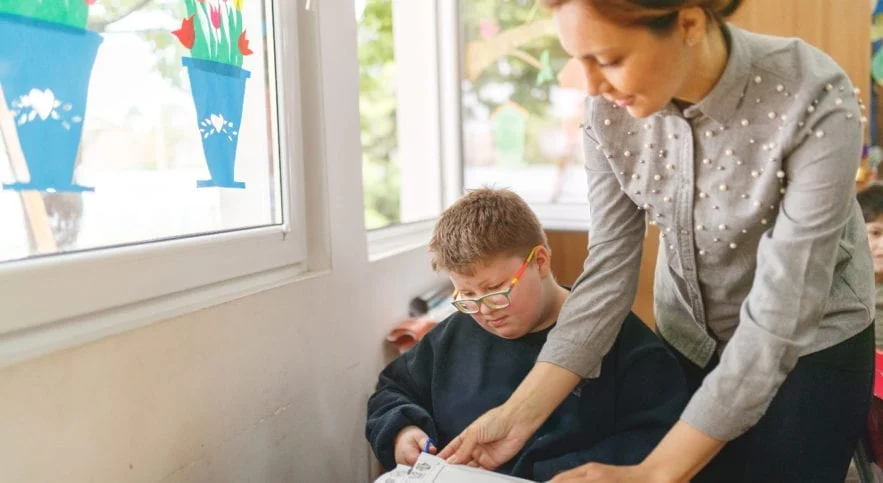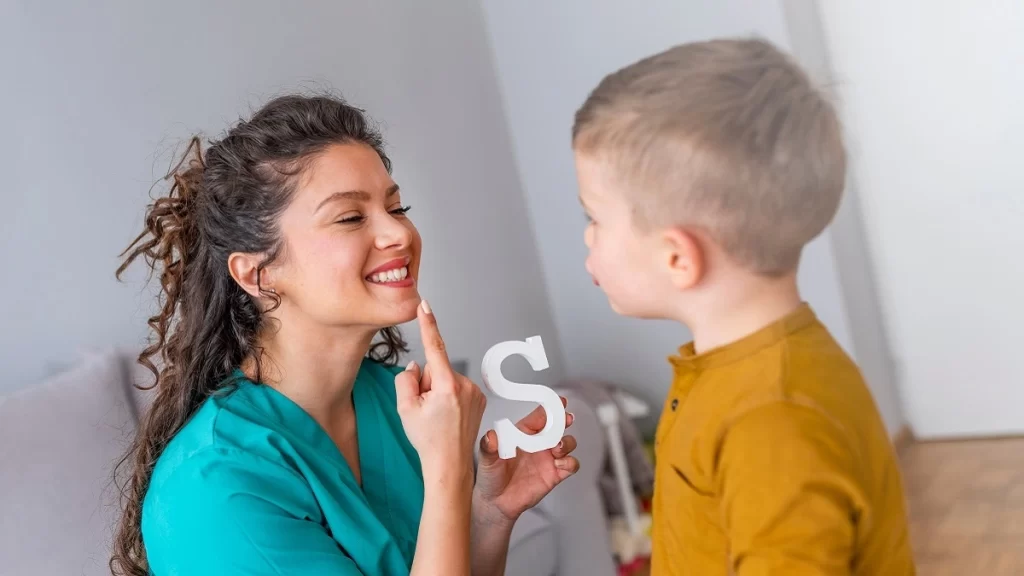If you are considering a career as a special education teacher, then you have come to the right place. Teaching students with disabilities can be incredibly rewarding and is an essential part of any school setting. But becoming a successful special education teacher requires more than just having love for teaching; there are certain skills and qualities that must be developed in order to benefit both your students and yourself as a professional educator. In this blog post, we will explore what it takes to become an effective special education teacher- from gaining experience working with students with disabilities, learning how to apply different methods of instruction, developing cultural sensitivity and much more! Read on if youd like to gain insight into the valuable requirements needed in order to make your dream of becoming a special education teacher a reality.
Creative Thinking Skills
Special Education Teachers are key players in helping students with special needs to reach their full potential. Creative Thinking Skills are essential for a successful career as a Special Education Teacher, as they allow educators to create a unique learning environment that caters to the specific needs of each individual student. Creative Thinking Skills help Special Education Teachers develop innovative strategies and tools to support the educational needs of their students.

The Creative Thinking Skills Necessary To Be A Special Education Teacher Include:
• Ability to think outside the box and come up with creative solutions. Creative Thinking Skills give teachers the ability to look at problems from different angles and see solutions that others may not have thought of before. This can lead them to create new strategies for teaching students with special needs, or even new ways for students to learn and grow academically.
• Problem Solving: Creative Thinking Skills give teachers the capacity to identify problems more quickly and find more effective ways of solving them.
Communication Skills
Communication Skills and Becoming A Special Education Teacher: Required Skills
Communication skills are an integral part of becoming a special education teacher. Communication between teachers, students, administrators, parents, and other community members is essential for creating an effective learning environment for children with disabilities. To become a successful special education teacher, it is important to have excellent communication skills in order to foster a positive classroom atmosphere and build strong relationships with those around you.
Special education teachers must be able to communicate complex information in a clear, concise manner. They should be able to explain educational issues and diagnoses without using technical jargon or medical terminology that may be confusing or intimidating to family members or students. Communication should also focus on the student’s strengths rather than their weaknesses so as not to discourage them.
In addition to being able to communicate clearly and effectively with students, parents and other educators, special education teachers need to have strong listening skills.
Emotional Intelligence
Emotional intelligence is becoming increasingly important in the field of special education teaching, as it requires a high level of empathy, patience and understanding of students with disabilities. Emotional intelligence (EI) is defined as the ability to recognize, understand, manage, and use emotions in creative and productive ways. It involves being aware of one’s own emotions, as well as those of others around them. Emotional intelligence can be developed by learning mindfulness practices such as meditation and yoga. Emotional intelligence is also linked to self-regulation and problem solving skills that are essential for a special education teacher.
Special education teachers must possess a unique combination of both soft interpersonal skills and hard technical skills in order to effectively support their students’ learning throughout their life journey. Emotional Intelligence plays a major role in helping special education teachers become successful educators, due to its focus on recognizing, managing and using emotions productively. Emotionally Intelligent special education teachers need to be able to identify how their own behavior may affect the environment they create for their students; this includes being aware of body language and tone of voice when responding to different situations. Emotionally intelligent teachers must also understand how their student’s disability affects their behavior; this requires an awareness of individual strengths, weaknesses and coping methods for each student.
In addition to emotional intelligence, special education teachers need to have strong organizational skills in order to plan lessons effectively according to individual student needs. A good understanding of disability laws is essential for anyone entering the field; special education teachers should have a thorough knowledge of federal guidelines pertaining to the Individuals with Disabilities Education Act (IDEA). A positive attitude towards all forms of diversity and having excellent communication skills will help create strong relationships with parents, colleagues and administrators alike which are integral parts of any successful educational team.
Critical Thinking Skills
Special education teachers need to possess strong critical thinking skills in order to be successful in their role. Critical thinking skills refer to the ability of an individual to think objectively and make sound decisions based on available information. Critical thinking involves analyzing all aspects of a situation, considering multiple perspectives, and evaluating the potential outcomes of different courses of action. Critical thinking is essential for effective problem solving and decision-making in any field or profession.
In order to be an effective special education teacher, one must have the ability to analyze a student’s strengths and weaknesses, identify areas needing improvement, and develop appropriate instructional strategies that address those needs. The teacher must also be able to interpret educational assessments accurately, recognize learning difficulties early on, modify instruction as needed to ensure students are appropriately challenged and supported, collaborate with other professionals such as speech language pathologists or occupational therapists, and communicate effectively with both students and parents. It is also important for special education teachers to have knowledge of a variety of instructional techniques that can help students succeed academically. Critical thinking skills are key for making informed decisions about which strategies work best for a given student or situation.
In addition to strong critical thinking skills, special education teachers should also possess excellent communication skills in order to effectively collaborate with other professionals involved in a student’s educational plan. Special education teachers must be able to clearly explain their ideas and opinions while also being willing to listen carefully when others present their point of view. They must be patient and empathetic when working with challenging behaviors or difficult family dynamics, demonstrate strong organizational skills in order to manage paperwork efficiently and accurately, understand their rights as well as their obligations under the Individuals with Disabilities Education Act (IDEA), have exemplar knowledge of state laws pertaining to special education services, maintain positive relationships with school administrators and colleagues while advocating for the needs of their students appropriately; among many other necessary qualities.
Collaboration Skills
Special education teachers must possess certain qualities and skills in order to succeed. Collaboration is one of the most important skills for special education teachers. Collaboration between special education teachers, general education teachers, parents, administrators and other professionals is essential to providing the best possible learning opportunities for students with impairments or disabilities. Collaboration among these stakeholders allows them to come up with creative solutions and strategies that help special needs children reach their full potential.
Good collaboration skills include being organized and prepared, having an open mind to different approaches, being receptive to feedback from others, reaching out when needed, communicating effectively with all stakeholders and fostering relationships based on trust. Special education teachers have a responsibility to facilitate a positive learning experience for both students and staff while creating the best environment they can. Collaborating with other professionals allows special educators to tap into the wealth of knowledge available from those who work closely with disabled students on a daily basis.
Collboration is key when working as a Special Education Teacher. You will be constantly interacting and conferring with colleagues, paraprofessionals, students, and parents. It’s important that you develop strong relationships built on trust and mutual respect. Good communication skills are also essential so that everyone involved in your student’s education is on the same page. If you think you have what it takes to become a successful Special Education Teacher, apply today! We would love to have you join our team.
Video


